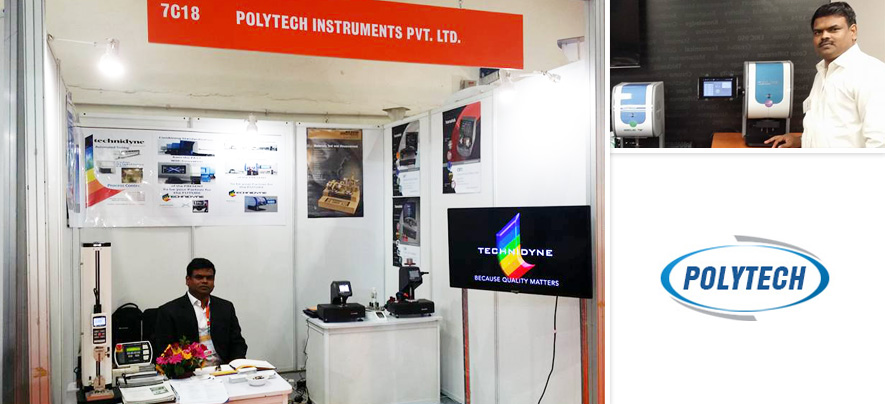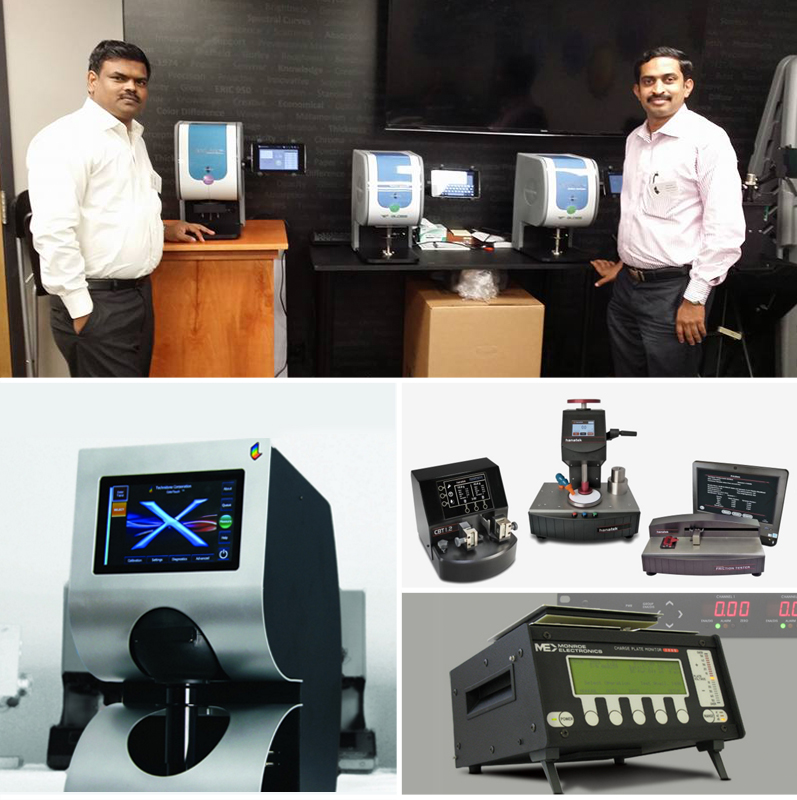Jagdish Maurya: From an Engineer to a Leading Supplier of Scientific Instruments in a Decade

SME Inspirations
462 week ago — 8 min read
Jagdish Maurya, Director, Polytech Instruments Pvt Ltd, Mumbai
Jagdish Maurya is the founder of Polytech Instruments Pvt Ltd, a leading supplier of laboratory and scientific instruments in India. Being a first generation entrepreneur, Jagdish believes that his steady approach to business; hand-picking a competent team; being well-organised and leading by example have been the reason behind his success.
The company supplies its products across India, and Jagdish’s strategic thinking of having a representative in each zone is reflective of his business acumen and keen understanding of the market. Moreover, Jagdish ensures that he imports equipment only from trusted and well-established global brands that has further cemented his credibility in the subcontinent.
GlobalLinker (GL) spoke to Jagdish Maurya (JM) about being a successful first generation entrepreneur and establishing a niche in the market.
Excerpts from the interview.
GL: When did you start your business and what is it about?
JM: I started Polytech Instruments Pvt. Ltd. in January 2004. We are into the trading & supplying of scientific & laboratory instruments in India. We mainly cater to the polymer, packaging, pharma and rubber industries across India. Moreover, most of the universities and research centres also use our equipment.
We mainly source equipment from the US & Europe. We also source some small products from China. Recently we have tied-up with a company in Australia.
GL: What made you start this business?
JM: I have been in this industry for many years. That’s how I got into this business. I am an engineer by qualification and I worked with the Toshniwal Group for many years, before starting this company. I started from scratch and have steadily expanded the business.
GL: What are some of the products you deal in?
JM: One of the primary products that we trade in is the Taber Abrasion Tester. This is used in the polymer, textile, carpet, wood & car manufacturing industries. This precision instrument is used to test accelerated wear and material evaluation. Another popular product is the Taber Stiffness Tester that evaluates resilience properties of materials. This is mainly used in the packaging and textile industries. The Taber Scratch Tester is used extensively in the automobile industry, to evaluate resistance to scratching and marring. The Tobias Densitometer is a popular instrument used to gauge the optical density of a product.
We deal with brands that are known world-wide and have established a benchmark for excellence. When the customer buys these products, they are sure about the quality and that the values they are getting from these machines is reliable. Buying products locally or from China maybe cheaper, but their reliability is a big question mark. Moreover, a high standard product lasts for up to 20-25 years.
GL: How important do you believe it is to have a digital presence?
JM: A strong digital presence is critical these days. We have been investing a lot on creating and maintaining our website. Not many companies have a comprehensive and informative website like we have. Having a good website establishes our credibility in the market and enables easy access to all the products and features by our clients. Also a good website ensures that there is no ambiguity and ensures that clients have fewer questions for the Sales Manager. Our website is comprehensive and displays a products gallery, product feature listings and a demo video of the product.
GL: What are some of the challenges you have faced in your entrepreneurial journey?
JM: For big players it is very easy to get into the business because they have got the resources – so it’s simpler for them to get loans or generate funds from the market or issue shares in the market and raise the money from people. But the first generation in a small enterprise really has to put in a lot of effort. For me it’s been a lot of effort but for my son, who is in the US now, for him it is easier – he can expand further or get into manufacturing.
In India we are not that aggressive in business. Things are changing but its taking long to see that change on the ground. You may have a brilliant idea, but as an SME you are always wary about raising funds, so you try to grow at a more measured pace. The things that you can do in 5 years, you have to do in 10 years because you invest through your own resources. I think 'slow and steady' is the right approach to business, considering the business scenario and support system available in India.
GL: What are your learnings from running a business for more than a decade?
JM: I believe that if a company is owned by 1-2 directors, your mindset is likely to be the same, as opposed to having multiple directors. The initial days of starting a business are tough. Once you settle down, things move in the right way if you are putting your best efforts.
For SMEs it is important that you are involved in the business. You cannot just sit back and relax, you have to take stock of everything, be in touch with your team and keep track of the situation.
I give importance to being organised and streamlining my business. We have a Sales & Service manager in every zone – Bangalore, Calcutta, Mumbai, and Delhi. We have four people at the back end, so we are a team of eight people. That’s good enough for our kind of business. Good engineers come at a cost, but I believe that if you have a competent team, it makes life easier. Our customers are across India, if they require something, they expect immediate service. The fact that I have a sales and service representative in each zone has worked favourably for me. Some of the other bigger companies have all their engineers in one location. What we decided is that we will have people at key places.
For example, if you are in Delhi and you buy my product, and if you want to get the product installed, I can send my representative without delay. Having a local presence in the respective metro cities makes sense also because they speak the local language. This makes interaction with the clients smoother. Having a presence across India and having good engineers with experience in the industry has been a real asset for us.
GL: What is your message to aspiring & upcoming entrepreneurs?
JM: What I have learnt from my experience is that you really need to grow step-by-step. You need to be steady, you need to be focused. You need to always be involved. Once you grow to a certain extent, don’t leave it to your team – be involved at every stage of your business. Of course there are many hurdles along the way. But as long as you are committed to doing your best and staying focused, you will succeed. You must have an honest and sincere approach to your business.
Disclaimer: This article is based solely on the inputs shared by the featured member. GlobalLinker does not necessarily endorse the views, opinions & facts stated by the member.

Posted by
GlobalLinker StaffWe are a team of experienced industry professionals committed to sharing our knowledge and skills with small & medium enterprises.
View GlobalLinker 's profile
Most read this week










Comments
Please login or Register to join the discussion